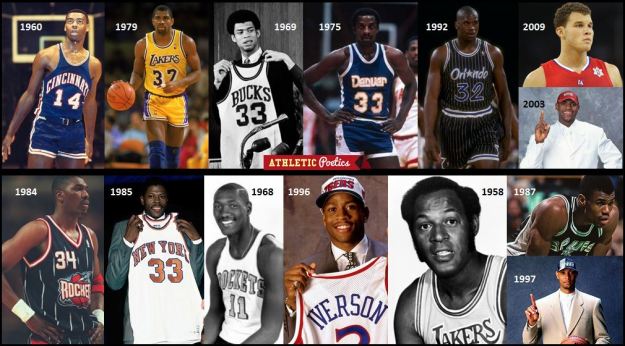
Oscar Robertson (Cincinnati Royals) became the only player in NBA history to average a triple-double for an entire season, with 30.8 points, 12.5 rebounds and 11.4 assists.
In the 1961–62 season, Robertson broke the assists record by Bob Cousy, who had recorded 715 assists two seasons earlier, by logging 899. The Royals earned a playoff berth; however, they were eliminated in the first round by the Detroit Pistons. In the next season, Robertson further established himself as one of the greatest players of his generation, averaging 28.3 points, 10.4 rebounds and 9.5 assists, narrowly missing out on another triple-double season. The Royals advanced to the Eastern Division Finals, but succumbed in a seven-game series against a Boston Celtics team led by Bill Russell.
During his 14-year NBA career with the Cincinnati Royals and the Milwaukee Bucks, Robertson became the top-scoring guard of all time, amassing 26,710 points. Among all players, only Kareem Abdul-Jabbar, Karl Malone, Wilt Chamberlain, Michael Jordan, Moses Malone, Elvin Hayes, and Hakeem Olajuwon have scored more.
The 6-foot-5, 220-pound Robertson played the shooting guard/point guard position, and was a twelve-time All-Star, eleven-time member of the All-NBA Team, and one-time winner of the MVP award. His average of 25.7 ppg per game ranks as the sixth-highest mark ever among retired players, and he averaged 30 points or more in six seasons. He was a key player on the team which brought the Bucks their only NBA title in the 1970–71 NBA season.



